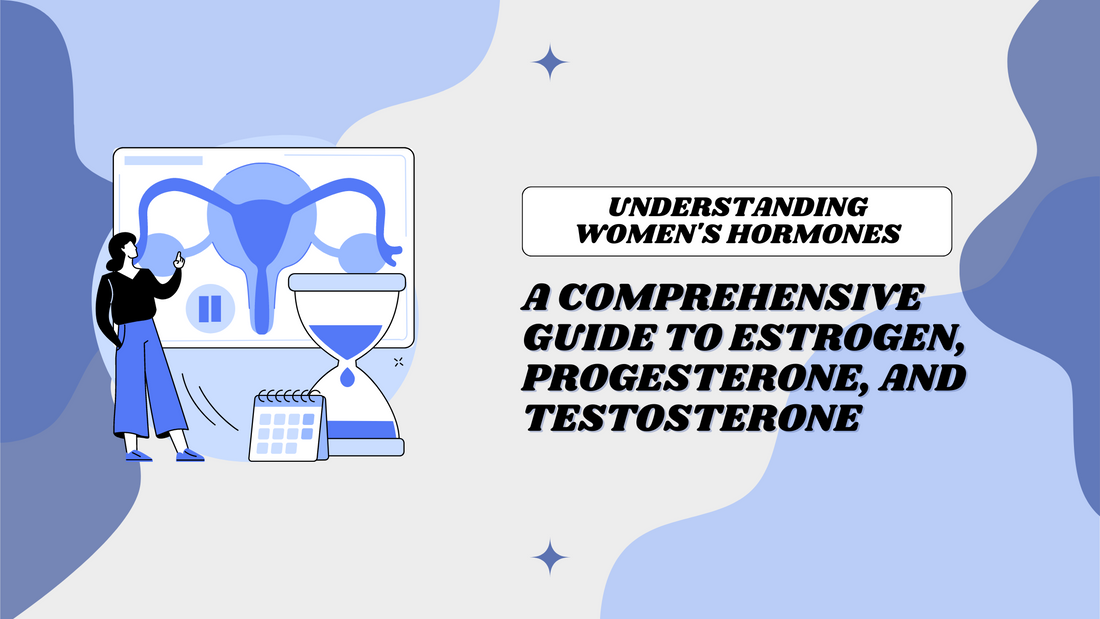Hormones are the silent conductors of the body's symphony, orchestrating various vital functions. In women, three primary hormones - estrogen, progesterone, and testosterone - govern numerous aspects of health, from reproductive functions to emotional wellbeing. Understanding these hormones, their symbiotic relationship, and how to maintain their balance can be integral to women's health.
Estrogen: The Feminine Force
Estrogen, often dubbed the 'female hormone,' is a cornerstone of women's health. This hormone steers the menstrual cycle, prepares the body for pregnancy, and even influences mood. An imbalance can present as irregular periods, mood swings, hot flashes, and even bone density loss.
Specific foods, rich in phytoestrogens, such as flaxseeds, soy products, and certain fruits and vegetables, can aid in managing estrogen levels. Additionally, maintaining a healthy weight and reducing exposure to environmental toxins known as endocrine disruptors can help preserve balance.
Progesterone: The Balancer
Progesterone, often underrated, is crucial for hormonal harmony. This hormone preps the uterus for potential pregnancy post-ovulation, moderates the menstrual cycle, and can even impact one's mood. Progesterone imbalances may manifest as heavy or painful periods, severe PMS symptoms, or problems with conceiving.
Lifestyle modifications, such as regular exercise and stress management, along with a nutrient-rich diet, can aid in preserving progesterone balance. Additionally, sleep plays a critical role, as progesterone levels rise and fall in relation to the body's sleep-wake cycle.
Testosterone: The Ignored Influencer
Testosterone, commonly associated with males, is also vital for women. It influences bone strength, muscle mass, fat distribution, and sexual drive. Imbalances can lead to fatigue, unexplained weight gain, mood swings, and a low sense of wellbeing.
Healthy lifestyle choices, like regular exercise, adequate sleep, and a balanced diet, can help maintain testosterone levels. Avoiding chronic stress is also essential as prolonged stress can interfere with testosterone production.
The Hormonal Symphony
These hormones form a symphony, their balance crucial for overall health. For instance, the interplay between estrogen and progesterone is vital for regular menstrual cycles and fertility. Testosterone, while present in smaller amounts, works with these hormones to regulate numerous functions, from bone health to mood and energy levels.
Hormonal imbalances can result in various health issues, including Polycystic Ovary Syndrome (PCOS), Premenstrual Dysphoric Disorder (PMDD), and even osteoporosis. Hence, understanding the synchronicity of these hormones and taking steps towards their balance is key to overall health.
Hormone Health and Lifestyle
Diet, exercise, sleep, and stress management significantly impact hormonal health. Consuming a balanced diet rich in lean proteins, whole grains, fruits, vegetables, and healthy fats can support hormone production and balance. Regular physical activity and quality sleep are also paramount.
Additionally, stress management plays a vital role. Chronic stress can wreak havoc on hormonal balance, leading to an array of symptoms and health problems. Employing stress management techniques such as mindfulness, yoga, and deep breathing can help maintain hormonal harmony.
When to Seek Help
Enduring symptoms like persistent fatigue, severe PMS, unexplained weight changes, or irregular periods warrant a consultation with a healthcare provider. They can guide whether hormonal imbalances might be the underlying cause and recommend suitable treatment options. Never hesitate to seek professional help when managing hormonal health.
In essence, understanding women's hormones – estrogen, progesterone, and testosterone – and their intricate interplay is foundational to maintaining optimal health. By recognizing their roles, the signs of imbalance, and the influence of lifestyle factors, women can proactively manage their hormonal health.
For more comprehensive resources on women's health and wellness, explore our broad range of educational content and products designed with your wellbeing in mind.
References
Harvard Health Publishing
Mayo Clinic
National Library of Medicine

